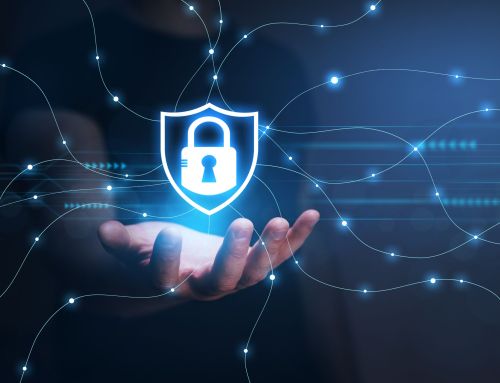With the exponential rise of ransomware, it is critical that small businesses have a backup and recovery plan in place. This article provides five crucial points for business owners to keep in mind to protect their business, data and customers.
Over the past few years, we’ve seen an exponential rise in ransomware. Cybercriminals see the potential for large paydays by extorting businesses for their data.
And it’s not just large enterprises they go after. Small- and mid-sized businesses (SMBs) can be targets as they have valuable customer data but lack the security measures that large businesses have in place. What’s worse, many SMBs that pay the ransom still don’t get their data back.
If SMBs want a significantly stronger way of tackling the ransomware threat, they need a solid backup plan and system in place. In fact, backup happens to be an absolute must-have when fighting ransomware – your antivirus and firewall can only get you so far.
Even if you lack the resources of a large enterprise, there are technical solutions that make backup both affordable and easy to maintain. And let’s face it – a small monthly subscription fee for a backup solution costs significantly less than buying bitcoin to get your data back. To help you pick the right solution and keep your vital data safe, here are five key considerations to take into account.
1. Security measures aren’t foolproof
Data loss can threaten a business at any time. Whether it’s an employee clicking an email link that contains a ransomware download, a natural disaster breaking a critical server or an executive spilling coffee on a laptop, data loss can happen for any number of reasons.
This underscores the importance of backup. Security measures like firewalls and antivirus can protect you against many data threats, but they’re not bulletproof (or more appropriately, flood proof). While you can’t plan for everything, having a decent backup solution helps you recover data when other measures fail.
2. Backup is a 24/7/365 job (but it can be made easier)
Many SMBs have woefully inadequate backups in place. It makes sense why this occurs – it often takes a lot of active work on the part of the IT staff, and it’s not a revenue-generating activity. In many ways, this can make backup a chore that businesses are likely to overlook.
But good backup health doesn’t have to be overwhelming. It is a 24/7/365 job, but a lot of the process can be automated. Many cloud-based backup solutions allow users to set backup times and frequencies. This just requires that the IT staff check on the day’s backup jobs to ensure all is well. More importantly, this lets businesses back up data more frequently, which helps keep their data safe in the event of an emergency.
3. The worst time to check backup integrity
Speaking of automated backup, many businesses can grow complacent with their backup process (especially if they’re running tape backups). When a crisis like a ransomware attack or a power outage hits, IT admins often have to scramble to make sure that they’re restoring from a healthy backup. This causes the recovery process to take longer than it should.
However, you can sidestep this process by choosing a solution that gives IT staff transparent reports on backup statuses. IT staff can check the integrity of any backup at any time, so they can confidently restore business continuity quickly during a crisis.
4. Rapid recovery with hybrid cloud
I’ve written about cloud-based backups, but the best backup tools rely on a hybrid cloud model. These combine the best features of in-house hardware with the best features of the cloud.
Hybrid cloud architecture allows users to restore quickly from local copies, rather than having to rely on internet bandwidth to restore from the cloud. This speed is crucial for restoring data quickly so your sales force or customer care department can continue doing their jobs after a downtime incident.
At the same time, having a cloud-based component to your backup software gives you redundancy in the event something happens to your local copies (or if, for example, you have a fire that takes out an on-site server). Which leads me to…
5. Hybrid cloud: essential for ransomware
To bring us full circle, backup is essential in protecting your business against ransomware. It allows you to restore your data and systems to their safe, preransomware state, letting you unlock your data and restore normalcy to your business without having to cough up money to a cybercriminal (who might not even unlock your data after receiving the ransom).
But here’s why hybrid cloud, in particular, matters: Some ransomware viruses now delete local backup copies. If you keep your backups only on local, in-house systems, these ransomware strains could hobble any attempt to restore your data, leaving you no choice but to pay the ransom and hope for the best. But having a cloud-based backup lets you sidestep this issue and restore from a safe copy stored off-site. In short, redundancy matters.






